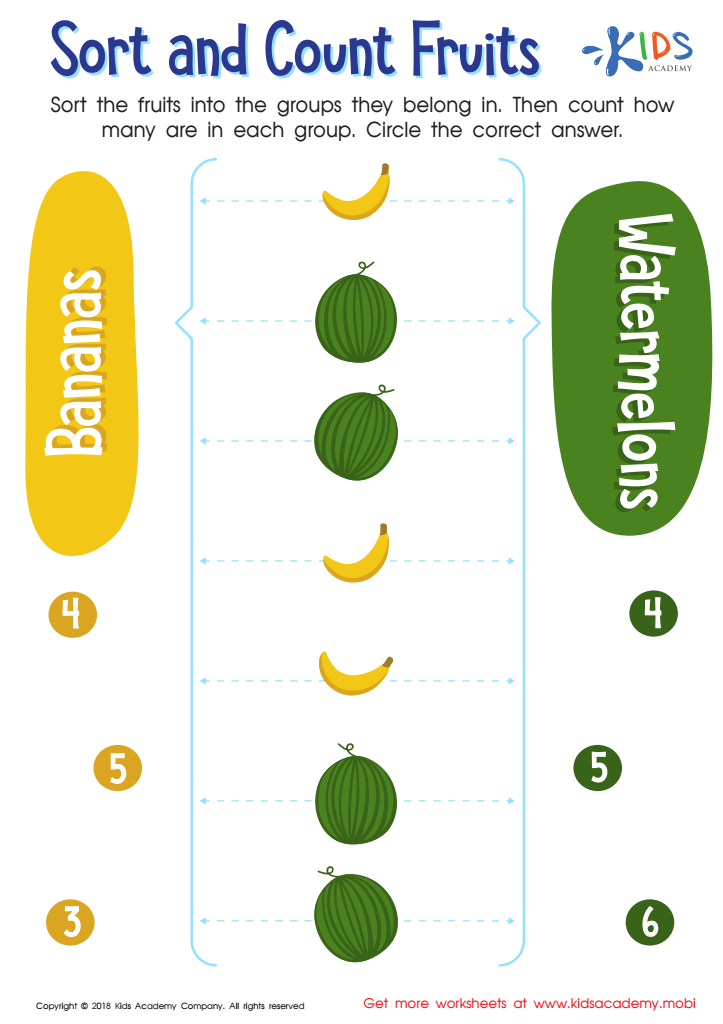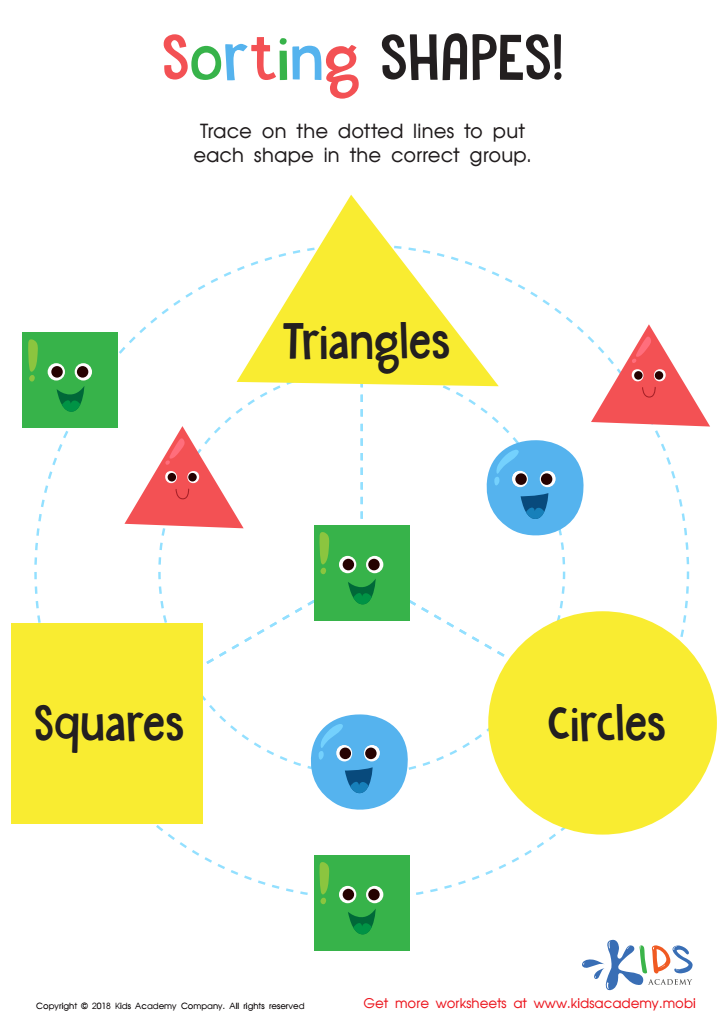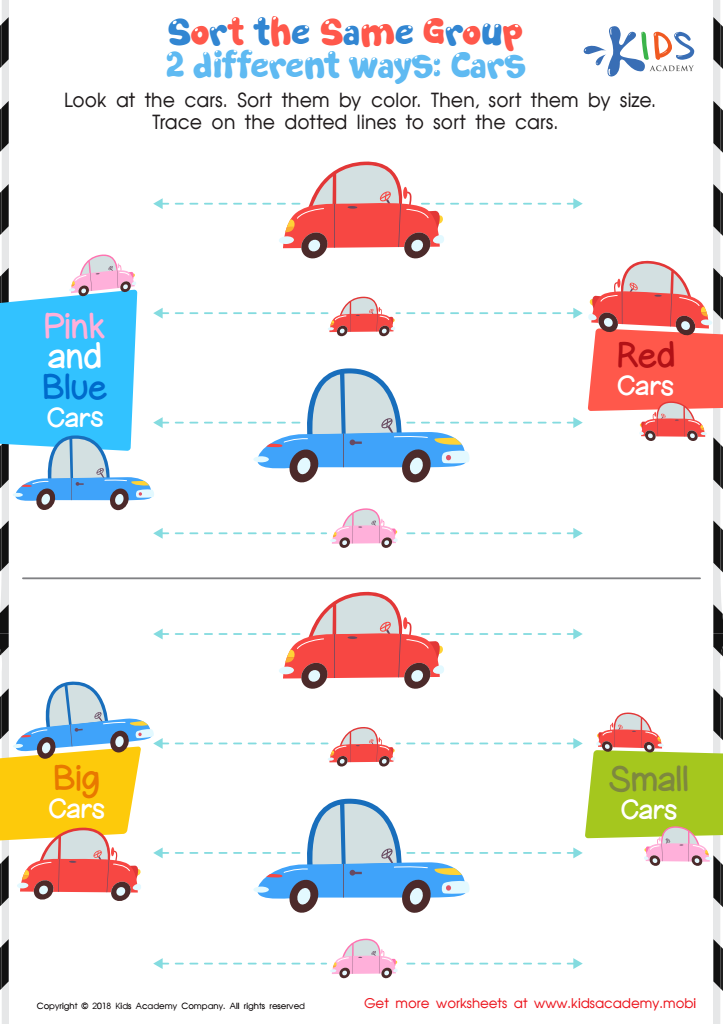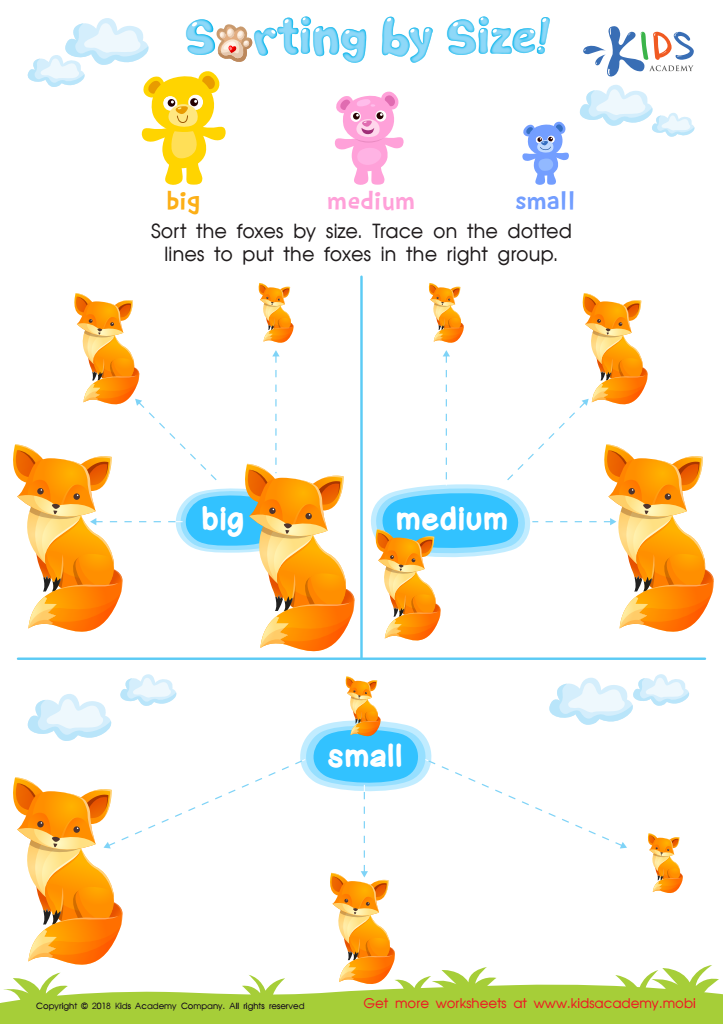Sorting skills Normal Sorting Worksheets for Ages 5-8
5 filtered results
-
From - To
Discover our engaging Normal Sorting Worksheets designed for children aged 5-8! These worksheets provide a fun and interactive way for young learners to develop essential sorting skills. By categorizing various objects, children enhance their critical thinking and organizational abilities while improving their understanding of similarities and differences. Our resources include colorful visuals and diverse sorting activities that cater to different learning styles, making it perfect for home or classroom settings. Watch your child's confidence grow as they master sorting concepts in a playful and educational environment. Get started today and support your child's early math skills with our thoughtfully designed worksheets!


Sort and Count Fruits Worksheet


Sort and Count to the Moon Worksheet


Sorting Shapes - Part 3 Worksheet


Sort the Same Group 2 Different Ways: Cars Worksheet


Sorting by Size Worksheet
Sorting skills are essential for children aged 5-8 as they lay the groundwork for critical thinking and cognitive development. At this age, children are naturally curious and eager to make sense of their surroundings. Normal sorting activities help them categorize objects, recognize patterns, and establish logical relationships, which are foundational skills for mathematics and scientific reasoning.
Parents and teachers should care about nurturing sorting skills because they foster a child's ability to organize information, an important tool for problem-solving. Through activities like sorting shapes, colors, or animals, children enhance their observational skills and develop categorization strategies that improve their comprehension and retention of information.
Moreover, sorting tasks promote fine motor skills as children handle different objects, supporting overall developmental progress. Collaborative sorting activities can also enhance social skills, encouraging teamwork, communication, and the sharing of ideas among peers.
In summary, investing time in sorting activities not only aids academic skills but also supports social and emotional growth, providing a comprehensive learning experience that prepares children for future challenges in both school and life.
 Assign to My Students
Assign to My Students





















